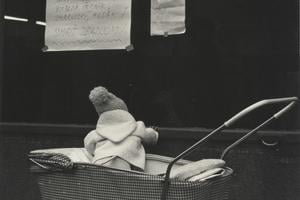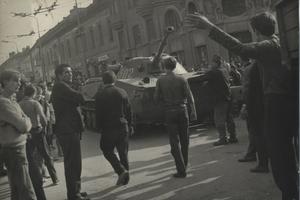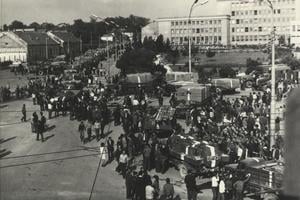“There was an unusual noise above Bratislava on the night of August 20,” recalls Dušan Daučík, one of the thousands of Slovaks who left their homeland after the 1968 occupation. The morning after he walked on today’s Štefánikova street and found it hard to tell if what he saw was reality or a nightmare.
Tanks ruthlessly rolled over the parked cars and broke electricity poles. Daučík and his wife rushed to Hviezdoslavovo square where soldiers built their nest on the roof of the Carlton hotel. At one point, they opened fire on the people who gathered there.
“People fled in all directions like mice,” Daučík told The Slovak Spectator. He managed to crawl up to the Chempik company opposite the hotel. There were several people lying on the ground at reception, waiting for the situation to calm down. Luckily, nobody was hurt.
Dangerous media
Daučík went to work in fear. He worked at Slovak Cartography, a modern well-equipped printing house publishing maps and atlases. In the days following the occupation, his office turned into a printing workshop producing posters with anti-Russian texts and mottos and slogans to support the Czechoslovak government.

They went on producing posters for several weeks. Meanwhile, many people he knew considered leaving the country: some left in the chaos of the first days. For those who were afraid to cross the Austrian borders without an invitation, they readily printed fake invitations in Daučík’s office.
Slovak Cartography had worked on posters for ten days when a sudden cry resounded in the building: “The Russians are coming!” The company director ran from machine to machine to dismantle them and cover the materials they had been printing. Fear filled the printing house.
The unit had apparently followed a wrong lead, because they passed the building and headed to the forest behind it. Their strategy was to occupy everything that had something to do with the media.
120 shillings and schnitzels from home
One day, Daučík’s wife saw two Russian cars stuffed with cabbages. It occured to her that the Russians were not leaving anytime soon. So the Daučíks made their decision, bid farewell to their parents and left for Vienna.
“It was the last time I saw my parents,” Daučík said. When they died he was not allowed to attend their funerals. If he returned, he would face prison time and a fine as punishment for leaving without permission.
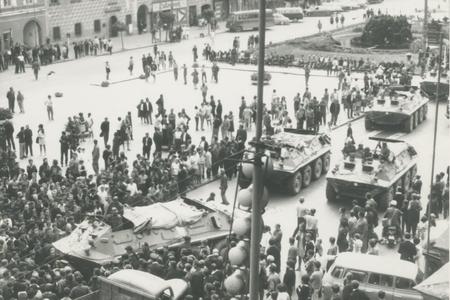
On their way to the West, the Daučíks felt insecure on the train, fearing that they might be checked by the regime. Daučík first hid his money in his shoe, then he changed his mind and put it behind the mirror in the WC. Their property consisted of 120 shillings and schnitzels from his mother.
The first moment, they did not know what to do or where to go. They started looking for accommodation, but those that were not full were too expensive for them. They ended up in a military camp, sleeping on straw mattresses. During the day, they visited embassies in Vienna. There were long queues in front of them, sometimes for two days of waiting.
“We were lucky. Our straw-mattress neighbours told us about Sweden. We had never thought about it before,” Daučík remembers. Sweden opened its borders to refugees after the UN and the Red Cross insisted. Daučík and his wife were the second couple to request asylum there.
Saved by Sweden
At the embassy, one man approached them in Slovak and helped them to fill in the required documents. The answer was to come in about two weeks, but when Daučík offered a small bottle of borovička, they got their answer in four days: Sweden took them in. Charity provided train tickets for them and after 23 hours on a train, the Daučíks got off at the Malmo railway station.
Due to a misunderstanding with the Swedish police they spent the first night at a police station. Later, they moved to a camp for language training. In a short time, 50 more people from Czechoslovakia showed up.
Both Daučík and his wife soon found jobs: he went to work in a printing house where he later became the production manager; she found a job as a developing designer of buses.
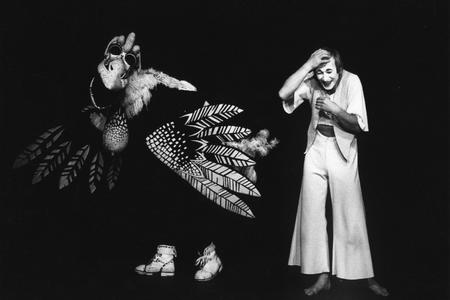
Looking back today, Daučík is very thankful to Sweden for accepting and giving them the possibility for self-realisation. Still, Slovakia remains forever in his heart as his home country. Today, he serves as the honourable president of the Swedish-Slovak society and first vice-chairman of the World Association of Slovaks Living Abroad. He also founded the magazine Svensk Slovak Info for expats.
“Slovaks do not value their freedom and the success of Slovakia,” Daučík opined. Slovaks have a short memory when only 50 years after the occupation they are allowing history to be attacked and subverted again.
“Those who experienced hard times in prison and interrogations or paid for freedom with their own lives could testify.”


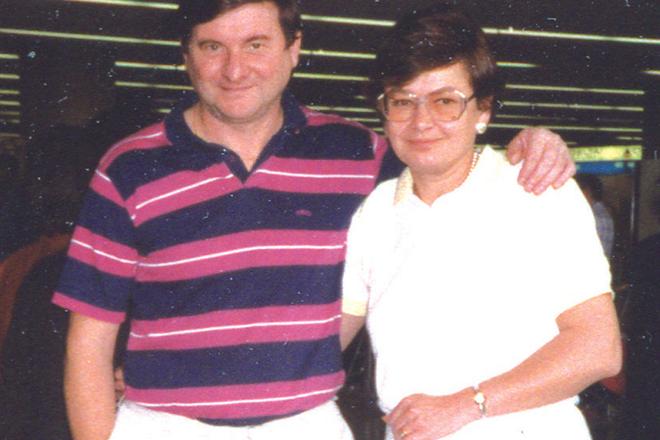 An older picture of Dušan Daučík and his, now late, wife Mária. (source: Dušan Daučík archive)
An older picture of Dušan Daučík and his, now late, wife Mária. (source: Dušan Daučík archive)
